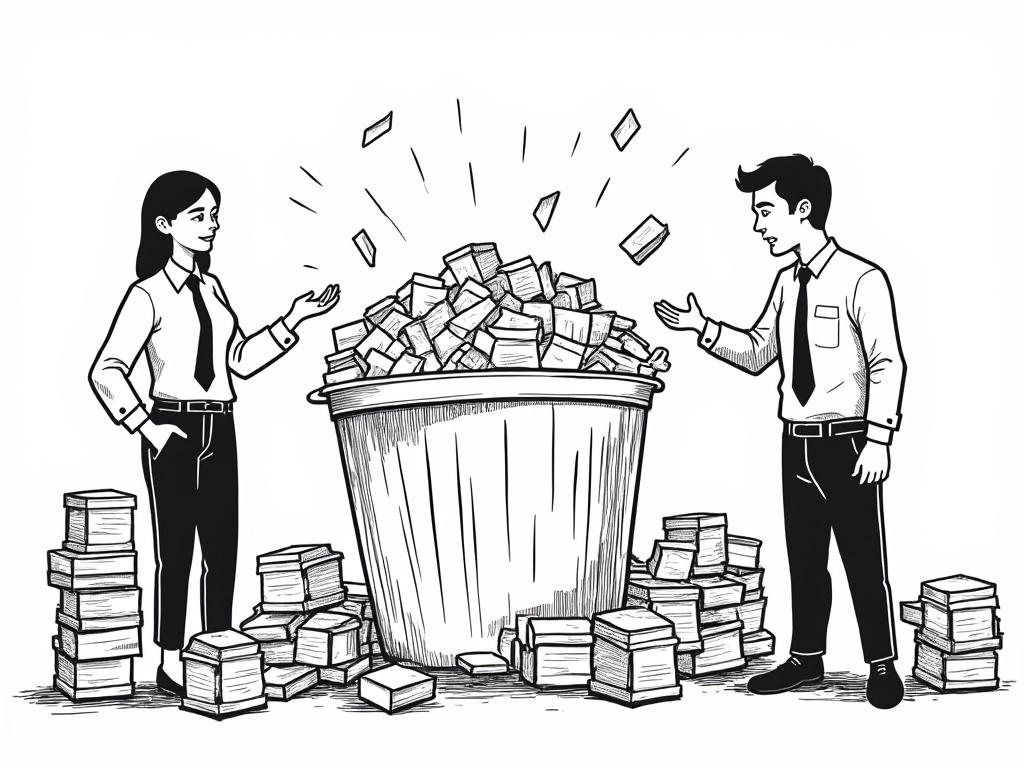
Waste Management and Recycling in Greece: Navigating Environmental Challenges and Opportunities
Reading time: 12 minutes
Table of Contents
- Current Waste Management Landscape
- Recycling Infrastructure and Systems
- Key Challenges and Innovative Solutions
- Municipal Programs and Citizen Participation
- Economic Opportunities in the Green Transition
- Environmental Progress: Your Action Blueprint
- Frequently Asked Questions
Current Waste Management Landscape
Ever wondered how Greece manages its 5.8 million tons of annual municipal waste? You’re looking at a country in rapid environmental transformation. The Greek waste management sector has evolved dramatically since the EU landfill directive implementation, yet significant challenges remain.
Here’s the reality: Greece currently recycles approximately 17% of its municipal waste, well below the EU average of 47%. However, this statistic tells only part of the story. The country has invested heavily in modern infrastructure, with new sorting facilities and expanded collection networks transforming urban waste management.
Regional Performance Variations
Picture this scenario: You’re comparing Athens with rural Crete. The capital processes waste through sophisticated automated sorting facilities, while island communities rely on traditional collection methods. This disparity highlights Greece’s complex geographical challenges.
Key Performance Indicators by Region:
| Region | Recycling Rate (%) | Waste Generation (kg/person/year) | Landfill Dependency (%) | Collection Coverage (%) |
|---|---|---|---|---|
| Attica (Athens) | 22% | 485 | 65% | 98% |
| Thessaloniki | 19% | 450 | 70% | 95% |
| Crete | 12% | 520 | 80% | 85% |
| Greek Islands | 8% | 580 | 85% | 75% |
| Rural Areas | 6% | 380 | 90% | 70% |
Tourism Impact on Waste Streams
Greece’s tourism industry generates approximately 30% more waste during peak summer months. Islands like Santorini and Mykonos experience waste generation spikes of up to 400%, creating logistical nightmares for local authorities. This seasonal variation demands flexible, scalable solutions.
Recycling Infrastructure and Systems
Let’s dive deep into Greece’s recycling backbone. The country operates through a dual system: the **Hellenic Recovery Recycling Corporation (HerRCo)** manages packaging materials, while municipalities handle organic and bulky waste streams.
Collection System Architecture
**The Blue Bin Revolution:** Greece implemented color-coded collection systems nationwide, with blue bins for recyclables, green for organics, and gray for residual waste. However, contamination rates remain high at 35-40%, significantly above European standards.
**Pro Tip:** Successful recycling isn’t just about infrastructure—it’s about creating behavioral change through consistent education and convenient access points.
Greek Recycling Performance Comparison
65%
45%
38%
72%
15%
Technology Integration and Smart Solutions
Forward-thinking municipalities are embracing **IoT-enabled waste bins** that signal collection needs, optimizing routes and reducing operational costs by up to 25%. Athens has deployed over 1,000 smart bins, providing real-time data on fill levels and contamination rates.
Key Challenges and Innovative Solutions
**Here’s the straight talk:** Greece faces three critical waste management challenges that require immediate attention and innovative approaches.
Challenge 1: Landfill Dependency and Capacity Crisis
**The Problem:** 75% of Greek waste still ends up in landfills, with many sites approaching capacity limits. The EU has imposed significant fines for non-compliance with waste diversion targets.
**The Solution in Action:** The **Waste-to-Energy facility in Volos** exemplifies Greece’s shift toward thermal treatment. This €180 million investment processes 140,000 tons annually, generating enough electricity for 50,000 households while reducing landfill dependency by 35% regionally.
Challenge 2: Island Waste Management Logistics
Quick scenario: Imagine managing waste on Santorini during August, when the population swells from 15,000 to 100,000. Transportation costs triple, storage space becomes critical, and traditional collection methods fail.
**Innovative Response:** The **Aegean Waste Compact Initiative** employs mobile compaction units and seasonal surge capacity planning. Islands now coordinate waste shipments during off-peak periods, reducing transportation costs by 40%.
Challenge 3: Citizen Engagement and Behavioral Change
Despite infrastructure investments, **contamination rates remain stubbornly high**. Cultural attitudes toward waste separation require targeted intervention strategies.
**Success Story:** The **Municipality of Trikala** implemented gamification in waste management, offering rewards for proper sorting. Participation rates increased from 35% to 78% within 18 months, demonstrating the power of incentive-based programs.
Municipal Programs and Citizen Participation
Ready to transform community engagement into environmental success? Greek municipalities are pioneering participatory waste management approaches that create lasting behavioral change.
The Athens Model: Comprehensive Urban Strategy
Athens operates Europe’s largest urban composting program, processing 15,000 tons of organic waste annually. The city provides free compost to residents, creating a circular economy loop that reduces disposal costs while enriching urban gardens.
**Practical Implementation Steps:**
- Neighborhood Champions Program: Train local volunteers as waste ambassadors
- School Integration: Environmental education reaching 200,000 students annually
- Business Partnerships: Corporate waste reduction commitments with measurable targets
- Digital Engagement: Mobile apps tracking individual recycling contributions
Rural Community Innovations
Small towns face unique challenges but offer flexibility for innovative solutions. **Kalampaka** (population 12,000) achieved a 65% waste diversion rate through community-owned composting facilities and repair cafes that extend product lifecycles.
This approach is particularly relevant for those considering property for sale in greece, as environmental consciousness increasingly influences residential choices and property values in sustainable communities.
Economic Opportunities in the Green Transition
Greece’s waste management transformation presents substantial economic opportunities. The sector employs over 25,000 people directly, with employment projected to grow 35% by 2030 as circular economy initiatives expand.
Investment Landscape and Growth Sectors
**The Market Reality:** Greece’s waste management market is valued at €1.2 billion annually, with 60% growth potential in recycling and recovery services. Private sector involvement has increased dramatically, with public-private partnerships driving infrastructure development.
**Emerging Opportunity Areas:**
- Plastic-to-Fuel Technologies: Converting non-recyclable plastics into diesel fuel
- Construction Waste Recovery: Processing materials for road construction and building applications
- Biogas Production: Capturing methane from organic waste for energy generation
- Smart Collection Systems: IoT solutions optimizing logistics and reducing operational costs
Case Study: The Hellenic Recycling Success
**HerRCo’s transformation** illustrates Greece’s potential. Since 2018, the organization has increased packaging recovery rates by 45%, creating 3,000 jobs while reducing imports of raw materials worth €150 million annually. This success demonstrates how environmental goals align with economic benefits.
Environmental Progress: Your Action Blueprint
Greece stands at a pivotal moment in its environmental journey. The next five years will determine whether the country achieves EU compliance targets while building a sustainable circular economy. Success requires coordinated action across all sectors.
Your Immediate Action Steps:
**1. Master the Basics (Week 1-2):**
- Learn your local color-coding system and collection schedules
- Set up home sorting stations with clearly labeled containers
- Download your municipality’s waste management app for updates and tips
**2. Engage Your Community (Month 1-2):**
- Join local environmental groups or start neighborhood initiatives
- Organize community clean-up events and recycling drives
- Share knowledge with neighbors through social media or community boards
**3. Scale Your Impact (Month 3-6):**
- Advocate for improved services in your area through municipal meetings
- Support businesses implementing sustainable practices
- Consider composting programs for organic waste reduction
**4. Drive Innovation (Ongoing):**
- Explore entrepreneurial opportunities in waste reduction technologies
- Partner with schools or businesses for educational programs
- Monitor and share your environmental impact metrics
The transformation of Greek waste management isn’t just an environmental imperative—it’s an economic opportunity that will define the country’s sustainable future. Your participation today shapes tomorrow’s Greece.
What specific action will you take this week to contribute to Greece’s environmental transformation? The time for passive observation has passed; active participation in this green revolution starts with your next decision.
Frequently Asked Questions
What are the main recycling categories in Greece’s collection system?
Greece uses a standardized four-category system: blue bins for paper, plastic, metal, and glass recyclables; brown bins for organic waste; gray bins for residual waste; and special collection points for electronics, batteries, and hazardous materials. Each municipality may have slight variations, so check your local guidelines for specific requirements and collection schedules.
How does Greece’s waste management performance compare to other EU countries?
Greece currently recycles 17% of municipal waste compared to the EU average of 47%, ranking among the lower-performing member states. However, the country has made significant progress since 2010 when recycling rates were below 10%. With ongoing infrastructure investments and policy reforms, Greece aims to reach 50% recycling by 2030, aligning with EU circular economy targets.
What business opportunities exist in Greece’s growing waste management sector?
The sector offers opportunities in waste-to-energy facilities, smart collection technologies, specialized recycling services, and circular economy consulting. Investment focus areas include plastic processing, construction waste recovery, and biogas production. Government incentives and EU funding support private sector involvement, with projected 35% employment growth by 2030 creating substantial business potential.

Article reviewed by Charlotte Ellsworth, Commercial Real Estate Developer | Transforming Urban Landscapes, on June 6, 2025


